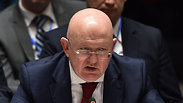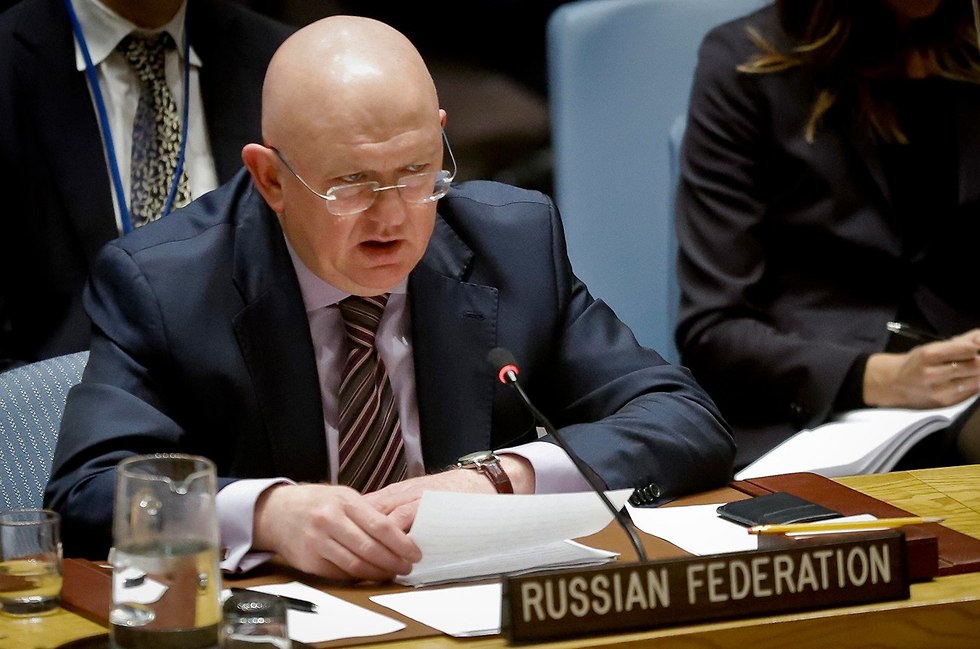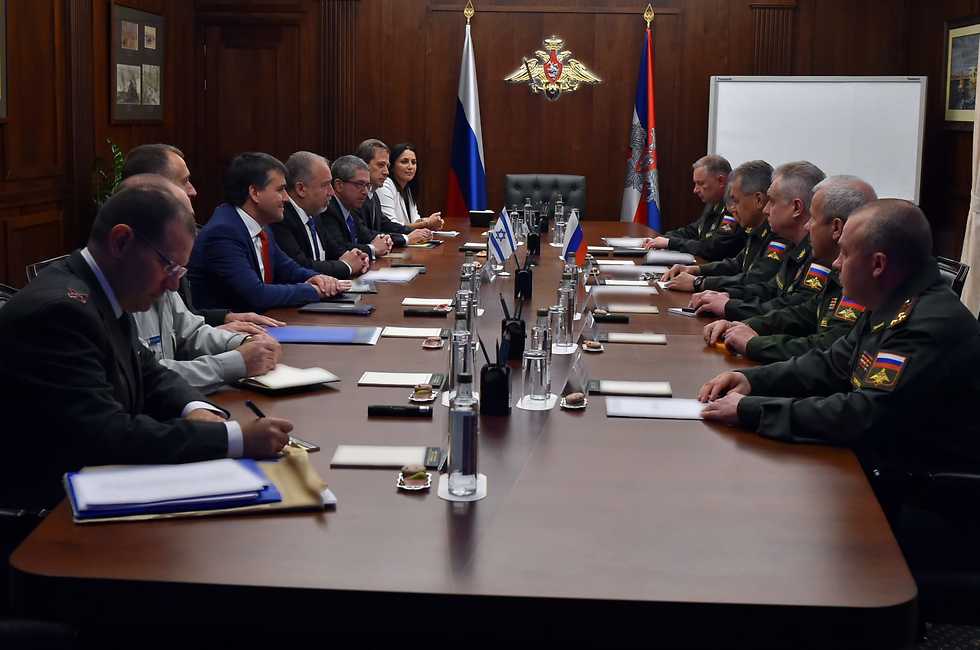
Russian envoy: Deal reached to remove Iranian forces from Golan
Russia's Ambassador to the UN Vasily Nebenzya confirms agreement has been reached that would see the removal of Iranian forces from Israeli-Syrian border; 'Parties that were involved in reaching the agreement are satisfied,' Nebenzya says.
"My understanding is that the agreement was reached. Whether it has been implemented as of now, I cannot answer," Nebenzya said. "If it hasn't been done by now, it will be done in the near future."
"I understand that parties that were involved in reaching the agreement are satisfied with what they have reached," he added.
According to a report in the London-based Asharq Al-Awsat newspaper, the Iranian forces will initially pull back its forces to within 20 kilometers of the border, and later to a range of 60 to 70 kilometers, with Russia underlining the fact that this was a gradual process.
In addition, Russia has reportedly given Israel a "green light" on operating in Syria's territory under the condition it will not harm Syrian regime centers.
Meanwhile, a Syrian war monitor reported that Iranian troops and fighters of Lebanon's Hezbollah group are preparing to withdraw from southern Syria.
The Britain-based Syrian Observatory for Human Rights said Thursday Iranian advisers and Hezbollah fighters will be withdrawing from the southern regions of Daraa and Quneitra near the Golan Heights.
The agreement between Israel and Russia comes after Defense Minister Avigdor Lieberman met in Moscow with his Russian counterpart Sergey Shoygu on Thursday to discuss the situation in Syria and Iran's presence there.
Russian President Vladimir Putin reportedly wanted Israel to allow Syrian President Bashar Assad's army to move southwards to the Jordanian border and secure all of the Syrian Golan Heights.
In return, the Russian president is willing to promise Israel that Iran's Revolutionary Guards Corps and Iran-affiliated militias will not be present in the territories Assad's army takes.
What the Russians are suggesting is to pull back forces loyal to Iran—including Hezbollah—to a distance of 60-70 kilometers east of the ceasefire line in the Israeli Golan. In any event, they will certainly not be present beyond the road connecting Damascus and as-Suwayda, the capital of the Druze governorate of Syria, and the Jordanian border.
The Syrian army's purpose in so doing, as per Russian sources, is to overtake three areas. The first is the Jordanian-Syrian Nasib border crossing southeast of Daraa and the second is Tel al-Harra, which overlooks the Israeli Golan and the armistice line—merely 12 kilometers east of the Israeli border.
Until the latter location was taken two years ago by rebels, it housed an Iranian intelligence outpost that collected signal intelligence from both observations and wiretaps, not just from Syrian rebels but also—and mostly—from Israel.
The third point is the town of Busra al-Harir, 30 kilometers northeast of Daraa.
These three strategic points will effectively allow the Syrian army to control the entire region, over which it currently only has partial control. Rebels number some 35,000 strong in the area, include Islamic State combatants present in the tri-border area of Syria, Israel and Jordan.
The Syrian regime, with Russian support, is therefore attempting to isolate the Syrian rebels encamped in the Lajat region, with as-Suwayda in its center, and put some daylight between them and the Jordanian border, through which they receive US aid.
Russia plans to introduce Russian military policemen to the region once it's taken by the Syrian army, who will then disarm the rebels of their heavy weapons. This ambitious Russian scheme has met with resistance from both Israel and Jordan.
The Russians have asked Israel to not prevent the Syrian army from going down into the region, and to refrain from retaliating if errant regime fire trickles from Syria so as not to sabotage its war effort. Israel was also asked to not target Russian advisers embedded with the Syrian forces.













